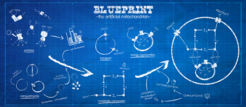
Research
Energy Regeneration Modules, Metabolic Conversions and System Integration.
In a strong collaboration with the group of Kai Sundmacher at the MPI-DCTS, the contributions of the EEC group to the MaxSynBio consortium are:
- Establishment and characterization of energy (light- or chemically-driven) and cofactor regeneration modules for artificial cells,
- Development and characterization of various synthetic compartments for the integration of functional parts, involved in energy regeneration,
- Coupling of the energy supply modules with different energy sink subsystems,
- Establishment of the general methodology for integration of functional parts and modules and modular design of synthetic cells, based on assembly standards and mathematical modelling.
Active processes in living systems require continuous supply of energy and materials and the energy supply and storage are closely connected to the cellular metabolism. One of critical steps in sustaining of life-mimicking processes in synthetic cells is energy i.e. ATP regeneration. Examples of such energy demanding processes in the MaxSynBio consortium are metabolism (L2), cell division (L4) and motility (L5). Previous studies have shown that simple ATP addition or ATP regeneration systems which do not regenerate ATP directly from ADP and Pi have no or only limited successes due to the accumulation of ATP hydrolysis products. Therefore, we develop energy supply modules, which can convert chemical or light energy into ATP, termed “Solar-to-ATP” and “Chemical-to-ATP”, based on different proton pumps and ATP synthase. In parallel we develop strategies for the redox management of NAD cofactors, which are involved in metabolic transformations. Finally, we are integrating energy regeneration modules with various metabolic conversions to form self-sustained synthetic organelles capable of operating continuously with a minimal number of sacrificial substrates.

Workflow for the bottom-up assembly of an artificial mitochondrion. Left: characterization of functional parts through performance standards such as activity, stability, etc.; Middle: integration of functional parts into functional modules for metabolism, energy and transport through assembly standards; Right: integration of modules into hypothetical artificial mitochondrion system through assembly standards and computer-aided optimization.
